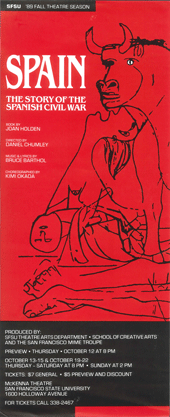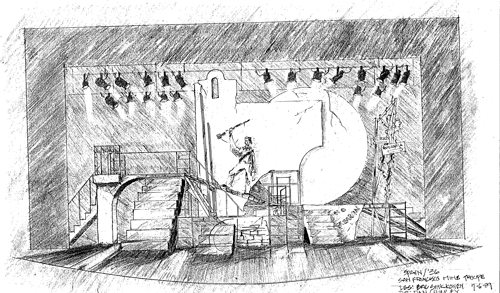A Spanish Anarchist guerilla leader who must compromise his dreams of revolution to help a liberal government combat a rightwing uprising; a Socialist Prime Minister who accepts Soviet influence as the price of desperately needed military aid; a young American, at first repelled by the political ambiguities of the struggle, who becomes involved in the heroic, but finally unsuccessful effort to stop the advance of Fascism.
Spain dramatizes the agony of the Spanish Civil War (1936-1939) through the stories of three principal characters, two Spanish and historical, one American and invented, but typical of a generation. In this small war -which drew thousands of volunteers from all over the globe, and inspired Picasso's Guernica and Hemingway's For Whom The Bell Tolls- the large forces whose collision has shaped our century clash on a small stage. An aroused working class, the poorest in Europe, demands land, bread, and political reform; a Liberal government which has promised reform ends up fighting for its life; an alarmed church and Oligarchy foment a military uprising- and intervening superpowers turn this civil conflict into the prelude to the second World War.
Spain is epic theater, with action on three levels. The main characters' dramas unfold in quick-cut realistic scenes whose sharp comic edge highlights their underlying tragedy. The international intrigues are played out by Hitler, Mussolini, Stalin, Churchill, and Roosevelt- mythic figures in giant masks- in stylized scenes where satire is used to clarify, not spoof geopolitical motives and events. The triumphs and defeats of the Spanish people are expressed in a series of breathtaking contemporary dance numbers, performed at the edge of physical risk.
The original score is inspired by the rich musical legacy of the Spanish Civil War era. It highlights and underscores the dramatic action of the play as well as providing comic counterpoint and character definition. |

|



